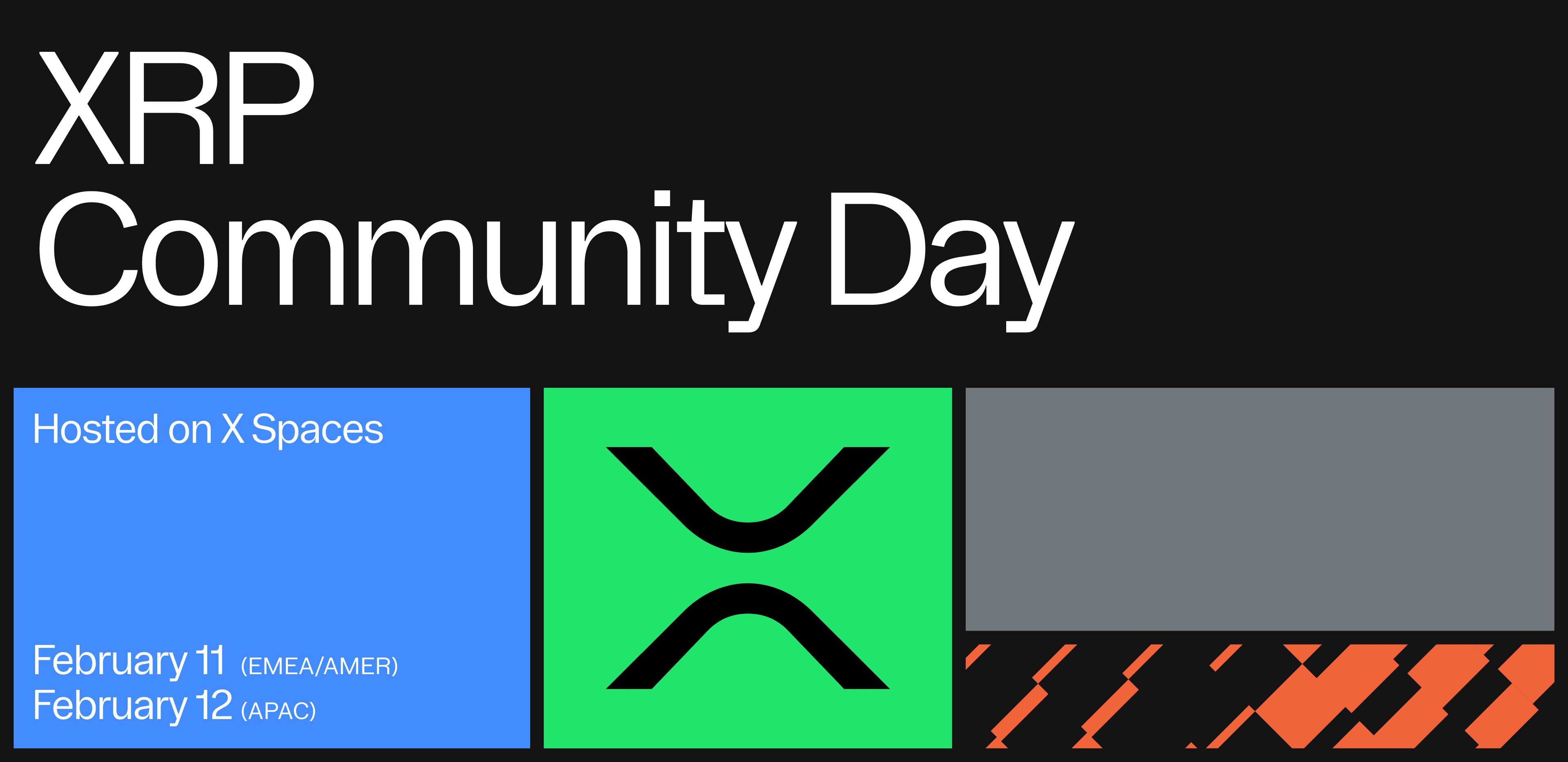Effective regulation of digital assets requires active dialogue between regulators and market participants, leveraging the strengths of both the public and private sectors. The public sector provides the necessary regulatory framework to ensure innovations in digital assets are secure, transparent and compliant, fostering trust among investors, businesses, and consumers.
Meanwhile the private sector, with its technical expertise and ability to quickly adapt to new technologies, is at the forefront of innovation; companies in the digital asset space, like Ripple, develop the underlying infrastructure that support new use cases and applications of blockchain technology. Collaboration with the public sector ensures this innovation develops in alignment with regulatory standards and public priorities, as well as creating a platform for knowledge sharing and resource pooling. Working together, Governments and private companies can better address shared challenges around interoperability, security, and scalability, which are critical for the widespread adoption of digital assets.
That is why Ripple prioritizes engagement at key public-private forums like Point Zero Forum. An initiative of Elevandi and the Swiss State Secretariat for International Finance, Point Zero Forum convenes central banks, regulators, policymakers, and industry leaders to address the latest developments in financial technology and the future of finance.
This year Ripple partnered with TRM Labs and Circle, with the support of Elevandi and Ecosystm, to host two public-private roundtables discussing topics of critical importance for the industry: regulations around decentralized finance (DeFi) and the future of digital payments.
The Next Frontier: Frameworks for DeFi Governance and Regulation
This roundtable, hosted in partnership with TRM Labs and Ecosystm, discussed the evolving landscape of Decentralized Finance (DeFi) governance and regulation and included participants from regulatory and standard setting bodies including the Bank of Lithuania, Banque de France, BIS Innovation Hub, Monetary Authority of Singapore (MAS), and OECD. Industry representatives included the Cambridge Centre for Alternative Finance, Global Blockchain Business Council, International Capital Market Association, and Uniswap Labs. While there are increasing global discussions on DeFi regulation — driven by bodies like the International Organization of Securities Commissions (IOSCO) and MAS — there remain challenges and opportunities when it comes to developing frameworks for oversight and compliance in DeFi. The key points that emerged from this discussion were:
- Global Framework for DeFi Taxonomy
The absence of a universally recognized definition for DeFi has led to confusion and inconsistency in regulatory approaches. Participants emphasized the need for a flexible, nuanced approach to developing a global DeFi taxonomy. While there are ongoing efforts to collaborate with DeFi developers to address regulatory and technological challenges, achieving a global consensus remains difficult.
2. Regulatory Challenges in DeFi
The decentralized nature of DeFi, coupled with the global disparity in regulatory understanding, poses significant challenges for regulation. Smart contracts, which improve efficiency by eliminating traditional intermediaries and automating certain tasks, can complicate accountability and enforcement. Participants stressed the need for enhanced international cooperation to address these issues and prevent regulatory arbitrage.
3. Public-Private Partnership
Effective regulation of DeFi requires collaboration between regulators and industry players, which is crucial due to DeFi's borderless nature. Initiatives that build regulatory capacity and leverage blockchain's transparency for oversight are key to ensuring that public-private cooperation can drive innovation while ensuring compliance and protecting consumers.
4. Balancing Innovation and Regulation
Participants also discussed how DeFi participants are integrating compliance measures, such as blockchain analytics and token screening, even in the absence of specific regulations. There is potential for technological innovations to enhance compliance, emphasizing the importance of balancing regulatory objectives with the open nature of DeFi.
5. Governance Shift from Centralized to Decentralized Finance
The shift towards decentralized governance in finance is transforming traditional systems, with projects like mBridge leading the way. Participants noted that understanding and adapting to these new governance models is critical for regulators and financial institutions, and collaboration between DeFi experts and regulators can lead to more effective governance frameworks.
There is a clear need for global harmonization in DeFi regulation, underscoring the importance of public-private partnerships and the continuous development of regulatory frameworks to adapt to the rapidly changing landscape. Read the full report from Ecosystm here.
Re-architecting the Financial System: Digital Payments
This roundtable, hosted in partnership with Circle and Ecosystm, bringing together participants including the Australian Securities and Investments Commission, Bank of Canada, Bank of Thailand, CFTE, J.P. Morgan, and UBS Group, explored the challenges and innovations in the digital payments landscape, with a focus on integrating blockchain-based digital money into existing global payment systems. The key points that emerged from this discussion were:
- The Evolving Digital Payments Landscape
Digital payments are transforming how transactions are conducted, with a shift from traditional cash and card systems to more efficient and secure digital wallets and blockchain-based solutions. Major financial institutions are adopting digital coins and tokenized deposits to enhance liquidity and enable around-the-clock transactions. The future of digital payments is expected to involve a mix of solutions, combining traditional and new technologies.
2. Challenges in Cross-Border Payments
Participants highlighted inefficiencies in cross-border payments, which are traditionally handled by established banks using bilateral relationships. This system introduces delays and costs that impact businesses and consumers. Blockchain-based digital money offers a potential solution by reducing friction and costs, though further research and development are needed to fully understand the potential.
3. Integration and Interoperability
A significant focus of the discussion was on how to integrate blockchain-based digital money into the existing payments infrastructure. Ensuring interoperability between different forms of digital money is essential, as is the need for collaboration to influence policy and improve the success of digital payments. Participants discussed best practices for integration and continued to emphasize the importance of public-private partnerships in driving innovation and regulatory compliance.
4. Global Perspectives and Future Trends
The global digital payments market is projected to reach USD 6.6 trillion by 2025, underscoring the shift towards cashless transactions. However, participants noted that while domestic payment systems have improved, cross-border transactions remain expensive. The future will likely involve a combination of new and traditional systems to address these challenges.
There is a clear need for continued collaboration between regulators, financial institutions, and technology providers to navigate the complexities of digital payments. Innovation, interoperability and regulatory compliance will be critical in shaping the future of global payments. Read the full report from Ecosystm here.
Building for the Future
As evidenced from these roundtable discussions, public-private collaboration is essential for the sustainable growth and innovation of digital assets and blockchain applications.
By combining the regulatory oversight and stability of the public sector with the agility and technological prowess of the private sector, these partnerships create a fertile ground for innovation and ensure that advancements in digital assets are not only cutting-edge but also secure, compliant, and aligned with broader economic and societal goals.
As the digital asset landscape continues to evolve, the collaboration between public and private entities will be key to unlocking its full potential, driving financial inclusion, and shaping the future of global finance. Ripple looks forward to continuing these discussions with key stakeholders so that we can continue to create the building blocks for global regulatory frameworks.
Learn more about Ripple’s global public policy perspectives.







